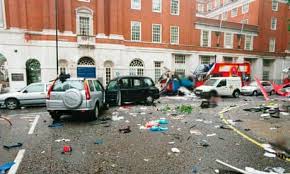
Introduction
The 7/7 bombings, which occurred on July 7, 2005, represent one of the darkest days in London’s history. This coordinated terrorist attack profoundly impacted the United Kingdom, causing immense loss of life and altering public perception of security and terrorism. It serves as a grim reminder of the consequences of extremism and the necessity of resilience in the face of adversity.
Details of the Attack
On that fateful day, four suicide bombers attacked the London public transport system during the morning rush hour. Three bombs exploded on underground trains travelling between the stations of King’s Cross, Aldgate, and Edgware Road, while a fourth bomb detonated on a double-decker bus in Tavistock Square. In total, 52 innocent lives were lost, and over 700 people were injured.
The bombings were carried out by four British nationals inspired by extremist ideologies, highlighting the often-overlooked issue of radicalisation within the country. In the ensuing wake, it became evident that terrorism could strike at any moment, no matter how secure a city feels.
Impact and Response
The tragic events of 7/7 prompted a significant shift in the United Kingdom’s security policies. The Government introduced new counter-terrorism legislation, aiming to tackle the root causes of radicalisation. Public transport systems were also overhauled to include enhanced security measures, such as increased surveillance and visible policing.
The bombings also increased community engagement as various organisations and initiatives began to foster integration and understanding among diverse populations to counter the narratives that fuelled extremism. Years on, the effects of 7/7 are still felt, with remembrance events and memorials held annually to honour those who lost their lives.
Conclusion
The legacy of the 7/7 bombings serves not just as a historical moment but as a lesson in the importance of social cohesion and resilience. As London continues to thrive as a multicultural metropolis, it is vital to remain vigilant against threats of terrorism whilst fostering unity. The memory of the victims reverberates through the city, reminding all citizens that safety is a collective responsibility. As future generations look at how the city responded to this tragedy, it is essential they understand the value of peace, compassion, and community strength.
You may also like

Baroness Longfield: A Voice for Children in the UK

The Life and Legacy of Freddie Scappaticci
